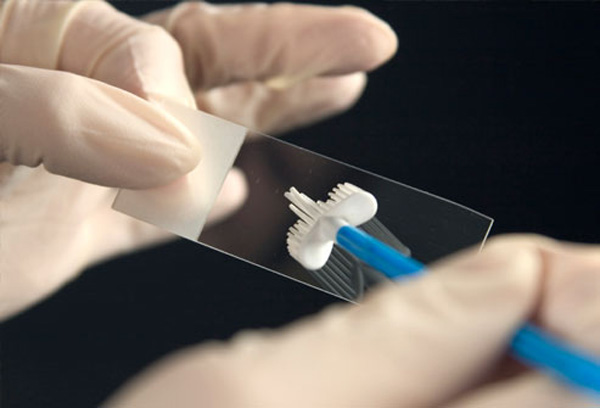Pap smear
Popular Services
Pap smear
A Pap smear, also called a Pap test, is a procedure to test for cervical cancer in women.
A Pap smear involves collecting cells from your cervix — the lower, narrow end of your uterus that’s at the top of your vagina.
Detecting cervical cancer early with a Pap smear gives you a greater chance at a cure. A Pap smear can also detect changes in your cervical cells that suggest cancer may develop in the future. Detecting these abnormal cells early with a Pap smear is your first step in halting the possible development of cervical cancer.

Who needs a Pap smear
A Pap test is usually performed with the pelvic examination. In the women above 30 years, Pap test is combined with a test for HPV i.e. human papillomavirus. This is a sexually transmitted disease-causing virus that can lead to cervical cancer in many women.
Usually, the doctor and the patient decide on when to undergo the Pap test and how frequently it should be done. The doctors generally advised going for Pap smear at the age of 21 years and then once every 2 to 3 years. In the women aged 30 years or above, the doctor advises the Pap test every 3 years or 5 years, in combination with the HPV test. In some cases, if the woman has certain risk factors for developing cervical cancer, the doctor can suggest a Pap test more frequently. Some of the factors, which can increase the risk of cervical cancer include:
- A diagnosis of cancer of the cervix or a previous Pap test that showed some precancerous cells.
- An HIV infection in a woman
- Exposure to DES i.e. diethylstilbestrol, before birth.
- Weak immune system due to the organ transplant, chronic use of corticosteroid or chemotherapy.
There are certain cases, wherein patients do not require pap test, as mentioned below.
- After the total hysterectomy procedure – After the removal of the uterus and the cervix of the woman, the patient should consult the doctor if the Pap test is to be continued. In case, the surgical procedure of hysterectomy was conducted to eliminate the non-cancerous lesions, then the routine Pap test can be discontinued. However, if the hysterectomy procedure was conducted for a cancerous or precancerous lesion, then the doctor advises to continue undergoing Pap test regularly.
Age factor – Older women can discontinue routine Pap testing. In the women aged 30 years or above, the doctor generally advises the Pap test every 3 years or 5 years, in combination with the HPV test. However, after the age of 65 years, and in case of normal screening results, the patient might be advised to stop the Pap test.
What are the Risks?
Pap test is a quick, simple and painless screening test for cervical cancer detection. However, sometimes, the Pap smear may give false-negative results, which means that the test report shows no abnormality, when actually there is a presence of abnormal cells. There are some factors which may cause a false-negative report, as mentioned below.
- A very small number of abnormal or cancer cells
- Inappropriate sample collection of the cervical cells
- Presence of some unclear inflammatory blood cells.
Cervical cancer takes a long time to develop. Hence, it is possible for the abnormal or cancer cells to go undetected. In case, the Pap test gives unclear results, the doctor might advise undergoing some other test to confirm the diagnosis.
Some side effects and complications associated with the Pap smear test are as mentioned.
- Vaginal bleeding or blood spotting after the Pap test. Excessive or heavy bleeding is specifically a concern.
- Chances of infection if the instrument is not sterilized.
